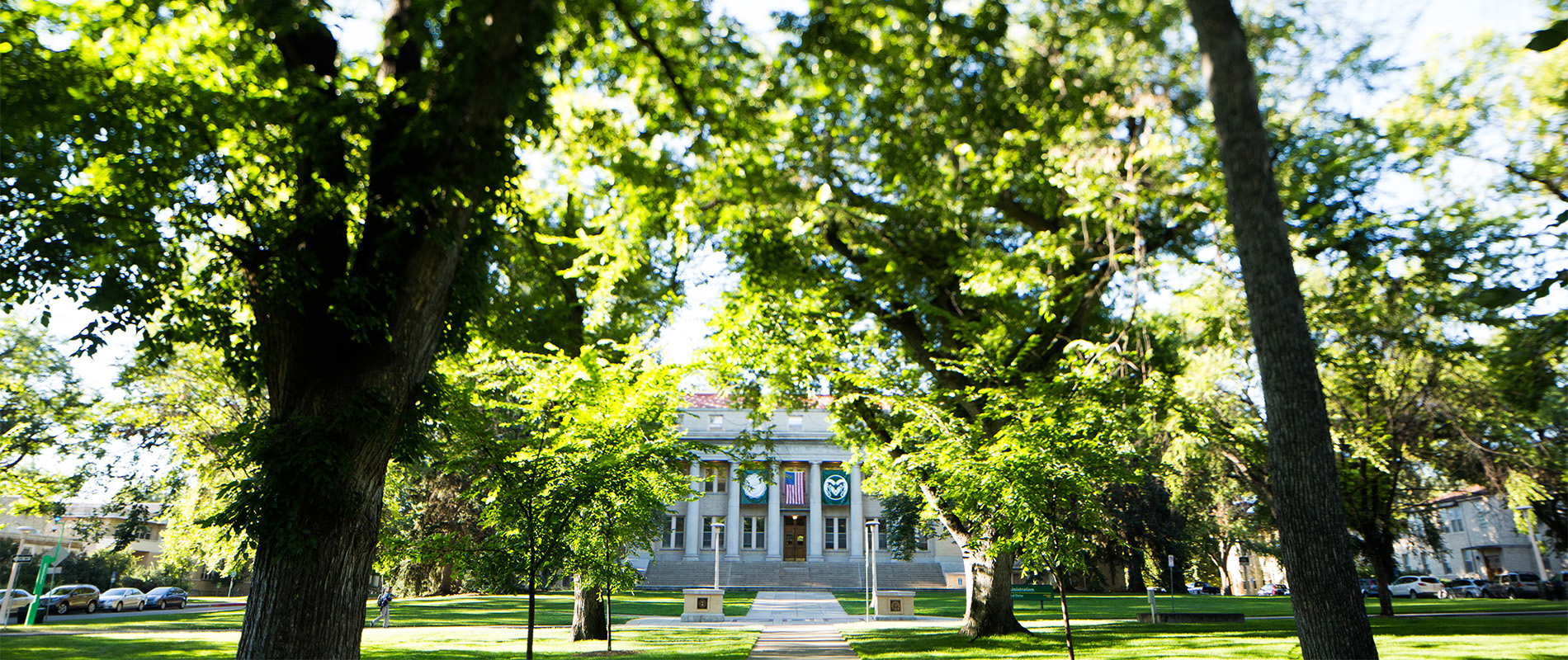
The Department of Statistics at Colorado State University offers graduate programs that lead to either the M.S. or Ph.D. degrees in statistics. The master’s program has been very successful in preparing candidates for careers in industry or government or for further study at the Ph.D. level. The M.S. is broadly based with course work in statistical methodology, probability theory, mathematical statistics and linear statistical models, as well as a selection of courses from the following areas: stochastic processes, time series, sampling, multivariate analysis, categorical data analysis, statistical computing, and other topics in statistical methods. Most students find the hands-on data analysis experience received from consulting in the Franklin A. Graybill Statistical Laboratory to be invaluable.
The Ph.D. degree program is sufficiently flexible to prepare candidates for careers in industry, government, and academia. Students, in consultation with their advisers, may choose a study program with emphasis on either statistical methodology and applications or the theory of statistics. Course work is required in advanced probability and mathematical statistics. Students may specialize in areas including: statistical methodology, linear models, time-series analysis, applied probability and stochastic processes, multivariate analysis, biostatistics, sampling theory, experimental design, and statistical computing. Formal course work is enhanced by an active visitors program and a seminar series. A course of study leading to the Ph.D. degree can be designed either for the student who has completed the M.S. degree or for the student who has completed the bachelor’s degree.
OPPORTUNITIES FOR SUPPORT
TEACHING ASSISTANTSHIPS
The department has a number of graduate teaching assistantships available; most outstanding students are able to obtain them. Appointments are for the nine-month academic year and provide for a monthly stipend, as well as the payment of tuition. Assistantships are renewable, based on satisfactory performance and academic progress. In addition, summer support options, such as internships, teaching, and consulting are available through the department. Most students hold teaching assistantships during their first year and work under the supervision of a faculty member in recitation sections of introductory courses. Graduate students of proven teaching ability are often permitted to teach their own section of an undergraduate course.
RESEARCH ASSISTANTSHIPS
Students may also move on to research assistantships, gaining experience in research projects like the following examples: hurricane prediction techniques; biometric studies for the US Department of Agriculture; analysis of environmental and pollution data; analysis of data from the Colorado Division of Wildlife; disease incidence modeling for radiation and health studies; modeling methods for whale stock assessment and management; and a variety of theoretical projects related to experimental design, stochastic processes, time series, mathematical statistics, and multivariate analysis.
Other Information:
RESEARCH FACILITIES
The Morgan Library is a short walk from the Statistics Department. The department is committed to maintaining a state-of-the-art computing environment. For computing needs, the department maintains both a Unix network, Sun workstations, X-terminals and an NT network (PCs), both of which provide access to many mathematical and statistical software packages, as well as the internet.
COST OF STUDY
Most assistantships include the payment of tuition on behalf of the student. All students are responsible for the payment of fees, which total approximately $2156 for the 2018-2019 academic year. For those full-time students not on appointments, tuition and fees per semester in 2018-2019 for the nine-month academic year is $12,368 for in-state and $27,200 for out-of-state students. For more detailed information, please consult the tuition and fees calculator, here.
* Colorado residency for tuition purposes can be established in 12 months by students who are U.S. citizens.
COST OF LIVING
In 2018-2019, the cost for room and board, books and classroom supplies, personal expenses, and health insurance is approximately $30,914 for nine months for Colorado residents; non-residents cost is approximately $46,438 for nine months. On-campus apartment rates can be found here.
The above rates include all utilities (heat, electricity, water, trash and sewer), cable TV, and high-speed internet.
THE AREA
Fort Collins, a city of about 170,000 residents, is located on the eastern slope of the Rocky Mountains, 65 miles north of Denver and about 40 miles from Rocky Mountain National Park. The mountains offer excellent opportunities for outdoor recreation. The climate is one of the attractive features of the area, with an abundance of sunny days and cool summer nights. Fort Collins, the University, and Denver offer a wide variety of cultural and other activities.
THE UNIVERSITY AND THE DEPARTMENT
The University was founded in 1870 as the Agricultural College of Colorado. It became Colorado State University in 1957 and has grown rapidly in recent years and now serves about 34,000 students. The statistics program at Colorado State University was established in 1960, and a separate Department of Statistics was created in 1971. There are twelve full-time and four part-time faculty members, with between 80-100 on-campus students, as well another 60 off-campus distance degree graduate students. The Department’s moderate size promotes effective interaction not only within the Department, but also with researchers in other disciplines.
CORRESPONDENCE AND INFORMATION
Graduate Admissions Coordinator
Department of Statistics
Colorado State University
Fort Collins CO 80523-1877
Telephone: (970) 491-5269
FAX: (970) 491-7895
E-mail: stats@stat.colostate.edu
